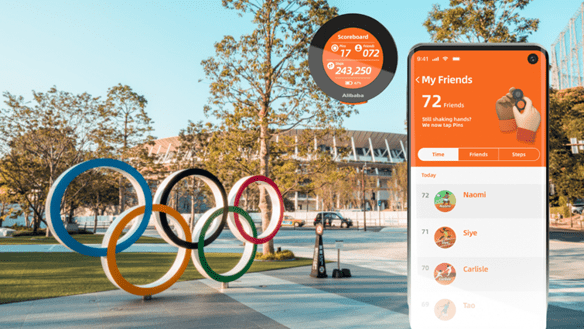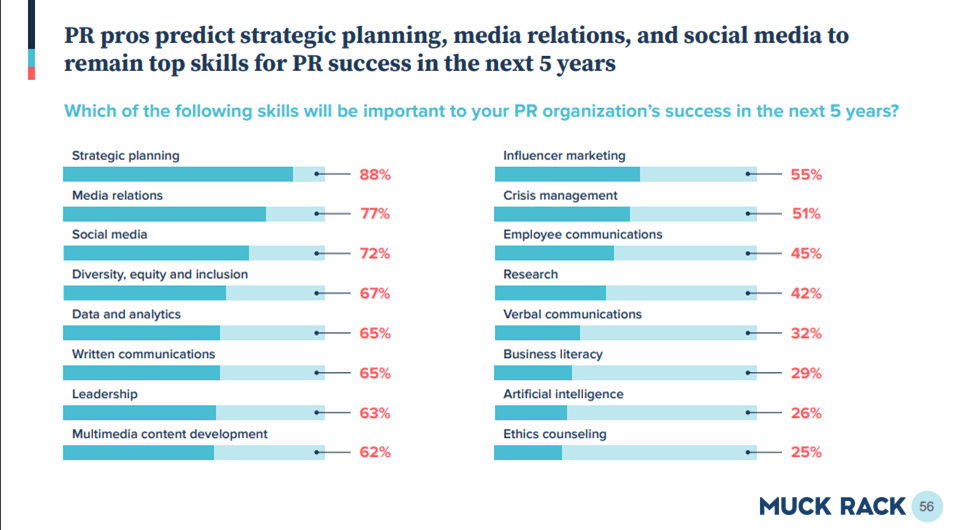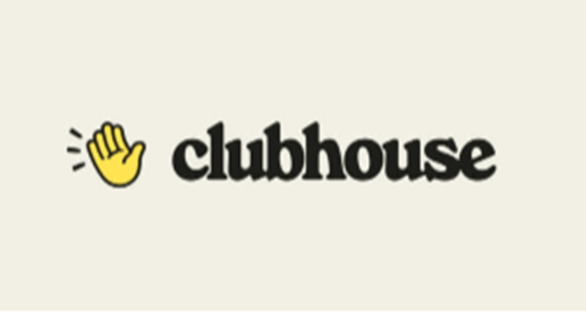Mercedes-Benz shares plans to go fully electric, PR pros emphasize need for strategic planning, and Olympic athletes criticize breastfeeding policies
Also: Olympic sponsors emphasize technology, Clubhouse opens to the general public and Facebook responds to content moderators about NDAs.
Hello, communicators:
While Japanese auto manufacturer Toyota has held back on running Olympics-themed ads in Japan for the Tokyo games, several other sponsors are leaning into the Olympics’ increased focus on providing remote access this year by sharing how their technology is enhancing the Olympics’ ability to provide a memorable and safe experience to fans despite the lack of in-person spectators.
For starters, The Alibaba Group has debuted a cloud-based digital, wearable pin for broadcast and media professionals covering the games. Alibaba hopes that the pin, which can be worn as a badge or attached to a lanyard, will allow members of the media to engage with each other and share contact information in a safe but interactive manner while covering the games.

“Today more than ever we look to engage people around the world through our digital ecosystem and connect them with the spirit of Tokyo 2020,” said Christopher Carroll, director of digital engagement and marketing at the International Olympic Committee, told Markets Insider. “We are excited to be partnering with Alibaba to support us in our digital transformation journey and to help us build engagement ahead of the Olympic Games.”
Dell Technologies has also announced a partnership with NBC Olympics to provide high performance data storage systems to store video content and easily manage large amounts of data. “With Dell EMC PowerScale, NBC Olympics will reliably store and simply manage more than 7,000 hours of athletic heroics across its networks and streaming platforms while making the experience for those watching remotely better than ever,” Jeff Boudreau, president and general manager, Infrastructure Solutions Group at Dell Technologies said in a press release.
These statements highlight what being a strategic partner is all about, providing an organization with value and resources that solve their unique, emerging issues. Both Dell and Alibaba also used their respective partnerships with the Olympics as an opportunity to highlight their own new innovations and tech, a reminder that your company news and product releases can be shared with a wider audience when you piggyback onto a popular partner’s moment in the spotlight.
Mercedes-Benz unveils plans to go fully electric by decade’s end
Luxury automobile brand Mercedes-Benz has shared plans to go all electric by the end of the decade, shifting from an electric-first to an electric-only mindset to make its entire fleet emissions free. By 2022, the brand will have electric vehicles in all segments where the company competes. By 2025 and on, all newly launched vehicle designs will be electric-only, and customers will have the options to select an electric alternative for every model that the company currently manufactures.
To facilitate this shift, Mercedes-Benz has released a detailed plan that focuses on battery capacity and charging, production, workforce, financial goals and more.
According to its press release:
“The EV shift is picking up speed – especially in the luxury segment, where Mercedes-Benz belongs. The tipping point is getting closer, and we will be ready as markets switch to electric-only by the end of this decade,” said Ola Källenius, CEO of Daimler AG and Mercedes-Benz AG. “This step marks a profound reallocation of capital. By managing this faster transformation while safeguarding our profitability targets, we will ensure the enduring success of Mercedes-Benz. Thanks to our highly qualified and motivated workforce, I am convinced that we will be successful in this exciting new era.”
What it means:
Mercedes-Benz’s messaging artfully manages to address every type of stakeholder at once—including investors, employees and consumers—all in one paragraph. The statement’s emphasis on a “tipping point,” acknowledges the recent trend of auto manufacturers leaning into electric vehicle production while positioning the company as a thought leader with a pledge to double down on its commitment to electric vehicles. The statement closes with a “forward-looking statements” clause that displays an impressive marriage of legal protections with easily-understandable language that many brands would be wise to adopt when issuing statements with goals and expectations that may change.
MEASURED THOUGHTS
A new infographic from Muck Rack highlights the top skills that PR pros consider important to their organization’s success in the next five years, including a focus on strategic planning (88%), media relations (77%), social media (72%) and DE&I (67%).

The prediction that strategic planning will be a top PR skill over the next five years serves as a reminder to advocate for the role of a communicator being more strategically embedded in every facet and department of your organization.
Consider conducting an audit of the ways that internal communications between departments and teams has created unnecessary headaches for the business with a focus on solutions for how teams can better communicate interdepartmentally with your role acting as the conduit between them.
Check out the full study here.
CRISIS COMMUNICATIONS
Facebook has responded to its contract content moderators in Europe and the US who authored an open latter calling for the company to eliminate what they consider to be overly restrictive NDAs that discourage the moderators from speaking out about working conditions. The letter also requests that moderators be brought in-house and receive the same pay and full benefits as full-time employees.
The letter asks that the company give moderators regular access to clinical psychiatrists and psychologists. “Imagine watching hours of violent content or children abuse online as part of your day-to-day work,” they write. “You cannot be left unscathed. This job must not cost us our mental health.”
In a statement, Facebook pushed back against the idea that moderators don’t have access to mental health care. “We recognize that reviewing content can be a difficult job, which is why we work with partners who support their employees through training and psychological support when working with challenging content,” a spokesperson said. “In Ireland, this includes 24/7 on-site support with trained practitioners, an on-call service, and access to private healthcare from the first day of employment. We also use technology to limit their exposure to graphic material as much as possible.”
Facebook’s response to its content moderators negates to specify what level of training the practitioners who provide support actually have (a specific concern the moderators express in the letter), as well as ignoring concerns over the lack of protections that the moderators face by not being full-time employees.
Addressing specific concerns being lobbed at your company in your messaging not only sends the message that your brand takes the concerns seriously but reinforces the fact that your brand reputation is only as strong as the public perception around how you treat your most vulnerable stakeholders.
TAKE OUR SURVEY
The Institute for Public Relations, Ragan Communications, and the University of Florida are conducting a follow-up survey to their 2020 report, “The Career Path of a Social Media Professional.”
This year’s survey investigates and illuminates the career path potential of social media professionals, shedding light on how social media is being managed, viewed and evaluated within organizations. Here are some highlights from our 2020 report.
We invite you to take this survey whether you’re in charge of social media for your company or are involved in some aspect of social media for a client. The survey should take approximately 15-20 minutes to complete, and all responses will remain confidential.
As thanks for taking the survey, you’ll get an opportunity to enter a drawing for three $50 gift cards and will receive a copy of the full report, which promises to be chock-full of valuable data for benchmarking and budgeting purposes. The report will be presented on Sept. 9, 2021 at Ragan’s Social Media Conference in Orlando, Florida and published through IPR and PR Daily.
SOCIAL BUZZ
Clubhouse has announced that it is ending its closed beta phase and allowing the general public to join the app and tune into its array audio chat rooms. Its new logo appropriately reflects the app’s intent to welcome new users:

According to its press release:
This means we have removed our waitlist system so that anyone can join. If you have a club, you can post your link far and wide. If you are a creator with an audience, you can bring them all on. If you’re hosting a public event, anyone can attend. You can bring close friends, classmates, family members, coworkers, and anyone else you like.
The invite system has been an important part of our early history. By adding people in waves, welcoming new faces each week in our Wednesday Orientations, and talking with the community each Sunday in Town Hall, we’ve been able to grow Clubhouse in a measured way, and (mostly 😬 ) keep things from breaking as we’ve scaled. But we’ve always wanted Clubhouse to be open.
Clubhouse’s statement works to explain its initial logic around gating access to its platforms that makes the decision seem smart and calculated rather than exclusive and alienating. Its emphasis on educating the general public about its rooms and functions, meanwhile, acknowledges that many of the app’s functions are still not common knowledge in a tone that looks to be helpful, not condescending.
RAGAN’S 2021 BENCHMARK REPORT
Ragan has released its annual Communications Benchmark Report, an exclusive study from Ragan’s Communications Leadership Council that analyzes the major trends in the profession over the last year.
During that time, comms pros have been called on to develop and distribute messages on new policies that affect internal and external stakeholders alike. Their role has become more essential as they helped keep their organizations focused and moving forward. They’ve seen their access to the C-suite increase throughout 2020, and they forged important new alliances with peers in other departments, including HR, finance and workplace wellness.
Culled from more than 750 respondents, the 32-page report is available in its entirety exclusively to members of the Communications Leadership Council.
Download your copy of the exclusive Benchmark Survey Executive Summary today and get a crucial competitive advantage that will fuel your success for 2021 and beyond.
Olympic athletes decry revised policies for breastfeeding mothers
Several Olympic athletes have expressed their concerns and frustration over the rules and language that make it difficult for mothers to continue breastfeeding their children while competing in the Tokyo Games. Most recently, Spanish swimmer Ona Carbonell posted an Instagram video where she says she was pressured to choose between breastfeeding her son and participating in the Olympics:
View this post on Instagram
U.S. marathoner Aliphine Tuliamuk also spoke out about her fight to bring her breastfeeding daughter to the Olympics:
View this post on Instagram
While the International Olympic Committee has not responded to Carbonell or Tuliamuk statements, it did revise the rules earlier in the month to allow nursing mothers to bring their children to the games.
“It is inspiring that so many athletes with young children are able to continue competing at the highest levels, including at the Olympic and Paralympic Games, and we are committed to doing everything possible to enable them to perform at the Tokyo 2020 Games,” the committee said in a statement obtained by ABC News. “After careful consideration of the unique situation facing athletes with nursing children, we are pleased to confirm that, when necessary, nursing children will be able to accompany athletes to Japan.”
The language of this revised guidance was still too ambiguous for some athletes:
Still not sure what "when necessary" even means. Is that determined by the mother or the IOC? We are Olympic mothers telling you, it is NECESSARY. I have not been contacted about being able to bring my daughter with me to Japan and we leave in 7 days. #Tokyo2020 #USWNT #TeamUSA https://t.co/cNGMt8w0Ss
— Alex Morgan (@alexmorgan13) June 30, 2021
Why it matters:
The groundswell of Olympic mothers still objecting to The Olympics’ revised guidance around breastfeeding athletes is a reminder that clarity is essential when changing a policy that has negatively impacted a group of stakeholders. The incident serves as a reminder that any messaging or campaign intended for a specific audience or demographic should be written by people from that group, or at the very least vetted by people from that group, before the statement is published.
SOUNDING BOARD
Given the controversy around this year’s Olympic games, would you be comfortable with your brand sponsoring or partnering with the Tokyo Olympics, PR pros and communicators?
Given the controversy around this year’s Olympic Games, would you be comfortable with your brand sponsoring or partnering with The Tokyo Olympics, PR pros and communicators? #DailyScoop
— PR Daily (@PRDaily) July 23, 2021
Is there a question you’d like to see asked? Let us know using the hashtag #DailyScoop!








Better strategic planning could have meant less PR injury for Unilever.
“The Stinker”—a statue like Rodin’s “Thinker”—could be drawn showing a seated man holding his nose at Unilever’s tolerance of prejudice.
Some Americans doubt the fairness of Iranian mobs shouting “Death to
Israel” and “Death to America.” We may prefer not to buy anything from a company whose strategy permits supporting such death-wishers.
Millions of Arabs are America’s friends and allies. They are threatened as we and Israelis are by Iran’s nuclear bomb research. But Ben and Jerry’s boycott supports terrorists who fired over 10,000 explosive missiles at helpless Israeli women and children and at their Arab neighbors in Israel.
Strategic PR consideration: distasteful corporate policies that allow killing innocent civilians can cause public disgust, lost sales and reputation, and—worst of all—lost lives, too much death.
Strategic planning should protect a company from being The Stinker.